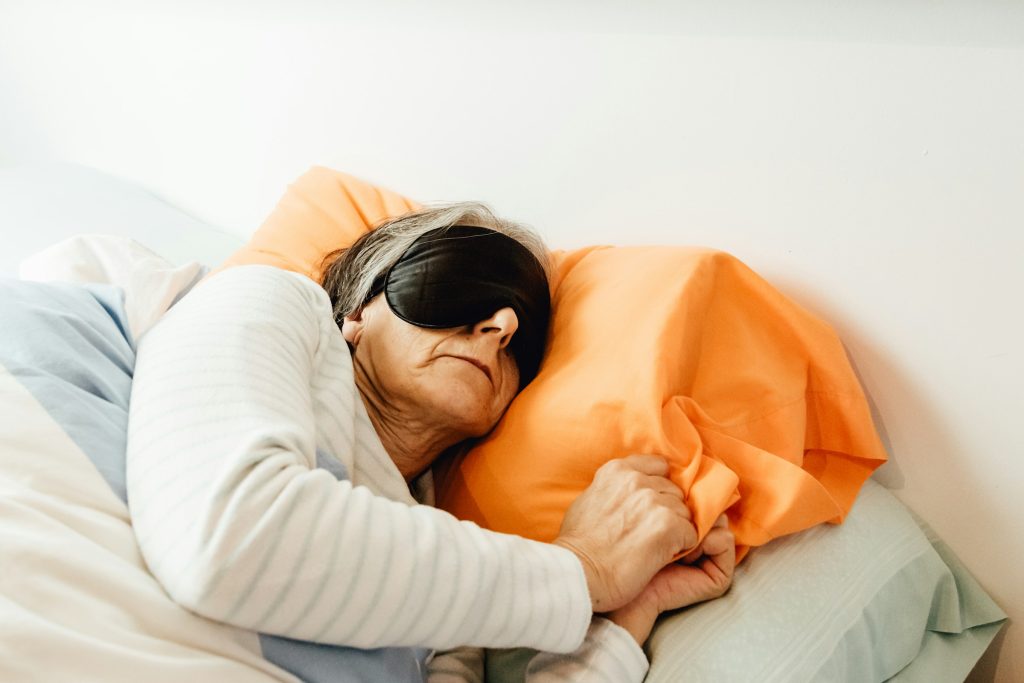Sleep is essential for our physical and mental well-being. Yet, many Australians struggle with insomnia and other sleep disorders. This article aims to provide accurate, evidence-based information about sleep health, common sleep issues, and strategies for improvement.

Understanding Sleep and Its Importance
Sleep is a complex biological process involving various stages and cycles. During sleep, our bodies repair tissues, consolidate memories and regulate hormones. Adequate sleep is crucial for:
- Cognitive function and memory
- Emotional regulation
- Physical recovery and immune system support
- Metabolic health
Common Sleep Disorders
Several sleep disorders can impact sleep quality and duration:
- Insomnia: Difficulty falling asleep, staying asleep, or both
- Sleep apnoea: Breathing interruptions during sleep
- Restless legs syndrome: Uncomfortable sensations in the legs, often worse at night
- Narcolepsy: Excessive daytime sleepiness and sudden sleep attacks
It’s important to note that only a qualified healthcare professional can diagnose these conditions. If you’re experiencing persistent sleep issues, we recommend consulting a healthcare provider for proper assessment and guidance.
Strategies for Better Sleep
While individual experiences may vary, research suggests several strategies that may contribute to improved sleep:
- Consistent sleep schedule: Aim to go to bed and wake up simultaneously each day, even on weekends.
- Create a sleep-conducive environment:
- Keep your bedroom dark, quiet, and cool
- Use comfortable bedding and pillows
- Remove electronic devices from the bedroom
- Develop a relaxing bedtime routine:
- Try gentle stretching or relaxation exercises
- Practice mindfulness or meditation
- Read a book or listen to calming music
- Be mindful of diet and exercise:
- Limit caffeine and alcohol, especially in the evening
- Avoid large meals close to bedtime
- Engage in regular physical activity, but not too close to bedtime
- Manage stress:
- Practice stress-reduction techniques like deep breathing or progressive muscle relaxation
- Consider keeping a worry journal to address concerns before bedtime
- Limit screen time before bed:
- The blue light emitted by electronic devices can interfere with your body’s natural sleep-wake cycle
- Try to avoid screens for at least an hour before bed
It’s important to remember that while these strategies are supported by research, individual results may vary. If sleep problems persist, it’s advisable to consult with a healthcare professional for personalised advice.
When to Seek Professional Help
If you’re experiencing ongoing sleep issues that impact your daily life, it may be time to consult a healthcare provider. Some signs that indicate a need for professional assessment include:
- Persistent difficulty falling asleep or staying asleep
- Chronic daytime fatigue or sleepiness
- Loud snoring or gasping during sleep (as reported by a partner)
- Persistent changes in sleep patterns
A healthcare provider can perform a comprehensive evaluation, which may include:
- Detailed medical history
- Physical examination
- Sleep diary analysis
- Possibly recommending a sleep study (polysomnography)
Based on the assessment, they can provide an accurate diagnosis and discuss appropriate treatment options, which may include:
- Cognitive Behavioural Therapy for Insomnia (CBT-I)
- Lifestyle modifications
- In some cases, medication (under medical supervision)
Working with a qualified healthcare professional is crucial to determine the most appropriate approach for your situation.
Emerging Research in Sleep Science
The field of sleep medicine is continually evolving. Ongoing research is exploring:
- The role of genetics in sleep disorders
- New technologies for sleep monitoring and diagnosis
- Potential links between sleep and various health conditions
- Novel treatment approaches for sleep disorders
While these research areas are promising, relying on well-established, evidence-based practices for managing sleep issues is important. Always consult with a healthcare professional before trying any new treatments or therapies.
Conclusion
Understanding and addressing sleep issues is crucial for overall health and well-being. While this article provides general information about sleep health and strategies for improvement, it’s important to remember that everyone’s sleep needs and experiences are unique.
If you’re struggling with persistent sleep problems, we encourage you to seek help from a qualified healthcare professional. They can provide personalised advice and treatment options based on your needs and medical history.
Remember, good sleep is an essential component of a healthy lifestyle. By prioritising sleep health and seeking appropriate support when needed, you can take important steps toward improving your overall well-being.



